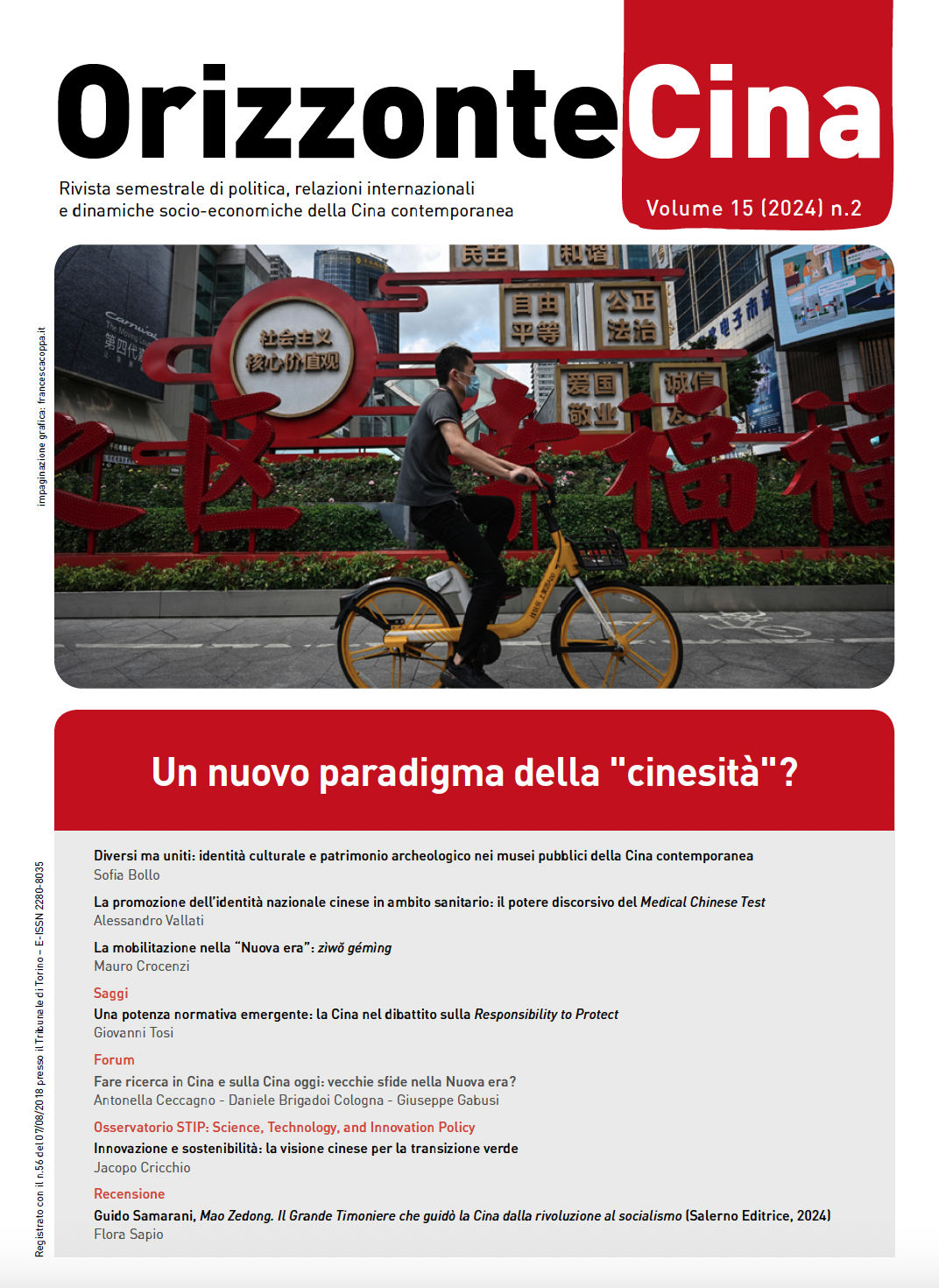La promozione dell’identità nazionale cinese in ambito sanitario: il potere discorsivo del Medical Chinese Test
DOI:
https://doi.org/10.13135/2280-8035/11139Abstract
L'istituzione del Medical Chinese Test (MCT) il 15 dicembre 2019 ha rappresentato una tappa significativa nella valutazione della competenza in cinese medico tra studenti e professionisti internazionali nel settore sanitario. Inserito nel più ampio contesto dei recenti successi della sanità cinese, il MCT è stato presentato come un elemento integrante delle conquiste della Cina nel campo sanitario. Tuttavia, la sua natura complessa e articolata pone sfide in termini di accessibilità su larga scala, come dimostra la presenza di soli 30 centri d’esame a livello globale, di cui appena 5 al di fuori dell’Asia. Facendo riferimento alla teoria del potere discorsivo, questo studio analizza il processo retorico adottato dal Ministero dell'Istruzione della Repubblica Popolare Cinese nell'introduzione del MCT, esaminandone il ruolo nella proiezione internazionale della ricerca, della lingua e della cultura cinese e nella costruzione di un'identità nazionale positiva. L’istituzione del MCT si inserisce dunque in più ampi obiettivi sociopolitici volti a mantenere la leadership politica, affermare l’influenza globale della Cina e conformarsi agli standard internazionali nello sviluppo e nella ricerca scientifica, rafforzando così il prestigio e il riconoscimento internazionale del paese.
##submission.downloads##
Pubblicato
Fascicolo
Sezione
Licenza
Copyright (c) 2025 OrizzonteCina

Questo lavoro è fornito con la licenza Creative Commons Attribuzione - Non commerciale - Condividi allo stesso modo 4.0 Internazionale.



